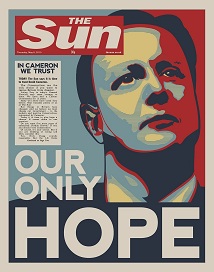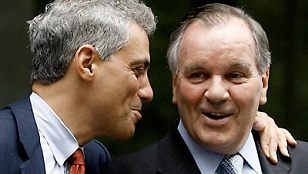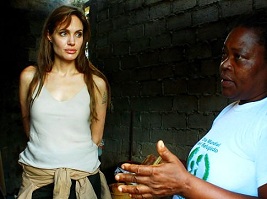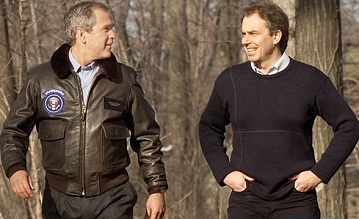British Prime Minister Cameron’s position under threat in Murdoch scandal
In the 2010 general election held on 6 May, the Conservatives won 307 seats in a hung parliament and Cameron was appointed Prime Minister on 11 May 2010, at the head of a coalition between the Conservatives and the Liberal Democrats. Using The Sun extensively, Rupert Murdoch had done his darned best to make it happen...
The political crisis surrounding the News of the World phone hacking scandal is now threatening the position of Prime Minister David Cameron.
With the arrest Sunday of former News International Chief Executive Rebekah Brooks, the Metropolitan Police and Rupert Murdoch’s media group are rounding on one another in public.
Brooks is the tenth person to be arrested as part of investigations into phone hacking and the corruption of police officers by News International. None as yet has been charged.
Brooks, a former News of the World editor, was invited to meet with police at the weekend on Friday, only hours after she resigned her post at News International, the company that controls Murdoch’s media outlets in Britain. Initially, there were allegations that the invitation was a ruse cooked up between the news group and the police to prevent her appearing Tuesday alongside Rupert Murdoch and his son James, News International’s chairman, before the parliamentary select committee investigating phone hacking.
The Murdochs had already made clear that their answers to the committee would be limited by the police investigations. Brooks’ arrest, it was argued, could see her exempted from appearing. In the event, a statement by Brooks’ lawyer said her appearance was a matter for the committee itself.
Brooks’ anger at being quizzed for nine hours under caution was made clear in the same statement. While she “is not guilty of any criminal offence,” it read, “the position of the Metropolitan Police is less easy to understand. Despite arresting her yesterday, and conducting an interview process lasting nine hours, they put no allegations to her and showed her no documents connecting her with any crime.
“They will in due course have to give an account of their actions and, in particular, their decision to arrest her with the enormous reputational damage that this has involved.”
The statement is indicative of the acrimony now breaking out at the highest levels of the state and political apparatus.
Murdoch’s Times editorialised that if the allegations of bribery amongst serving police officers proved true, it would mean, “Britain’s police are riven with corruption on an institutional scale. Journalists who bribe policemen are indicative of a flawed industry. Policemen who can be bribed are indicative of a flawed state.”






























